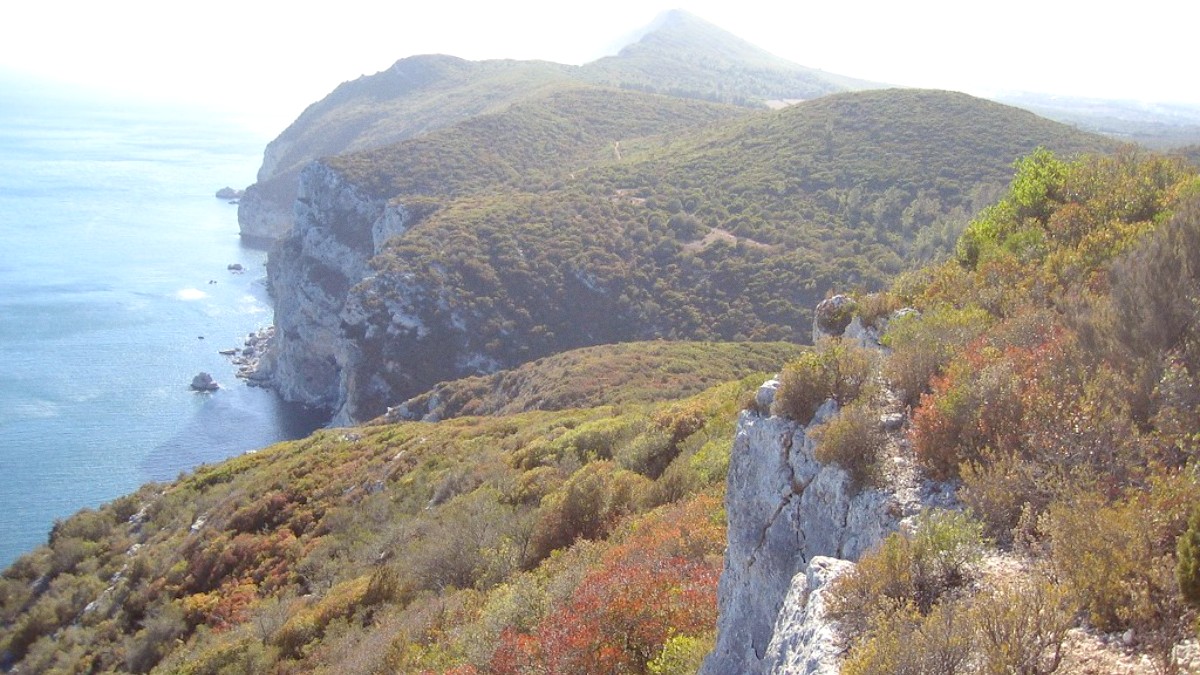
Lisbon, Portugal
To the south, the Sado Estuary Nature Reserve unfolds as a vast expanse of wetlands, saltpans, and rice paddies. This reserve holds international recognition for its ecological significance. It serves as prime habitat for migratory birds and, uniquely, a resident pod of bottlenose dolphins. A sand spit, the Troia Peninsula, stretches along the estuary's southern edge, offering pristine beaches and a connection to ancient Roman history. This varied landscape means Setúbal presents mountain hikes, beach relaxation, and wildlife observation within a short distance of the urban center.
The city itself hugs the river, with its historic core laid out in narrow streets that climb gently from the waterfront. The port area, still active, buzzes with fishing boats and commercial vessels, a constant reminder of Setúbal's maritime identity.
The blend of urban development with the surrounding natural parks gives Setúbal a distinct appeal, offering both city amenities and immediate access to outdoor adventures. Proximity to Lisbon means easy travel by train, allowing visitors to combine urban exploration with a retreat to Setúbal's more relaxed pace.
Setúbal boasts a history that spans millennia, with evidence of human settlement dating back to prehistoric times. Its strategic location on the Sado estuary made it an attractive site for various civilizations. During Roman times, the region thrived, notably on the Troia Peninsula, directly opposite modern Setúbal. This Roman settlement, known as Cetóbriga, became a major hub for fish salting, a major industry in the Roman Empire. Archaeological remains at Troia show extensive fish processing factories, baths, and residential structures, highlighting the region's ancient prosperity linked to the sea. The modern city of Setúbal likely developed on the mainland as a supporting settlement for these industries.
In the medieval period, Setúbal emerged as a significant port for trade. Its natural harbor facilitated the export of salt, fish, and locally produced wine. The city's growth continued through the Age of Discoveries, a period of Portuguese maritime expansion. Setúbal's shipyards and its access to the Atlantic Ocean positioned it as a major player in the global trade routes. The wealth generated from maritime commerce helped shape Setúbal's urban fabric, contributing to the construction of churches and public buildings. Later centuries saw Setúbal transform into a major center for sardine canning, an industry that defined its economy and identity for much of the 19th and 20th centuries. While the industry has since declined, its legacy remains deeply embedded in Setúbal's culture, from its culinary specialties to its industrial architecture. More recently, Setúbal diversified its economy, with cork production and shipbuilding prominent sectors.
Cetóbriga on Troia Peninsula was a major fish processing hub.
Export of salt, fish, and wine from a natural harbor.
Shipyards and Atlantic access fostered global trade.
Defined the city's economy for centuries.
Cork production and shipbuilding maintain industrial ties.
The city sits on the edge of a vast cork forest region, contributing to Portugal's status as the world's leading cork producer. Shipbuilding continues to operate large facilities, maintaining Setúbal's connection to heavy industry.
Setúbal's historical core preserves charming old streets, some paved with traditional Portuguese cobblestones, called calçada portuguesa.
Visitors find numerous significant religious buildings, including the Manueline Gothic Convent of Jesus, showing a distinct Portuguese architectural style.
This layered history means that a walk through Setúbal's streets echoes its Roman, medieval, and industrial past, each contributing to the unique character of this coastal city.
Setúbal presents travelers with a genuine Portuguese experience. This city moves at a more relaxed pace than Lisbon, providing an authentic glimpse into local life while offering plenty to explore. Its character is shaped by a deep connection to the sea, reflected in its bustling fish market, the Mercado do Livramento, and its renowned seafood cuisine, especially the iconic "chocos fritos" (fried cuttlefish). The city's authentic feel comes through in its tascas (traditional eateries), where locals gather for hearty, inexpensive meals, and its lively central squares, like Praça do Bocage.
Beyond the urban charm, Setúbal acts as a direct gateway to some of Portugal's most impressive natural landscapes. The Arrábida Natural Park, with its dramatic coastline and verdant hills, provides opportunities for hiking, kayaking, and relaxing on secluded, clear-water beaches. The Sado Estuary Nature Reserve offers a rare chance to observe bottlenose dolphins in their natural habitat, a signature experience of the region. Birdwatching in the wetlands attracts nature enthusiasts from around the world.
Explore Arrábida's coastline and hills; observe dolphins in the Sado Estuary.
Experience bustling fish markets and savor "chocos fritos."
Wander through ancient streets and discover significant sites.
Setúbal balances its historical depth with modern conveniences. It presents a range of accommodations, from budget-friendly guesthouses to more upscale hotels, alongside a reliable public transport network.